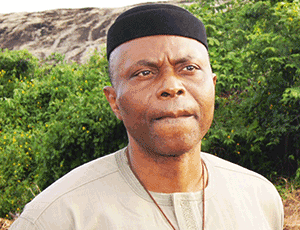Governor of Ondo State, OLUSEGUN MIMIKO, belongs to the Labour Party (LP), but maintains that the political affiliation has not dimmed his progressive traits, writes Head, News Desk, VICTOR EBIMOMI
Olusegun Mimiko
In politics, there are two popular bents: the progressive and the conservative. The progressive is assumed to be a change agent; a transformer who changes things for the better – for the general good. The conservative, on the other hand, is regarded as a person satisfied with the status quo and who hardly bothers about changing it, and if at all he does minds personal rather than general good.
But who is a progressive in contemporary Nigerian politics? This was the poser thrown by Ondo State Governor, Dr. Olusegun Mimiko, on Tuesday, August 5, when he was guest speaker at the business lecture/luncheon of the Yoruba Tennis Club, Lagos.
Speaking on the topic, ‘Progressivism as an ideological instrument for social integration – the Ondo example’, the governor faulted many of the politicians in the country today who lay claim to being progressives, saying they lack the ideological content to appropriate that name.
For him, to be a progressive, “The platform must emphatically take the people as sacrosanct. It must take the people as the focus of governance, especially the weak, the poor and the disadvantaged; the interest of whom governance must unmistakably serve. It must expressly be against concentration of economic resources and political power in the hands of individuals or closely-knit groups. It must be an advocate of egalitarianism, poverty reduction and accountability to the people. It must at all times and in all seasons seek and work for clean election and democracy.”
He argued that any articulation or governmental action that does not seek to mainstream all of these attributes does not qualify to be called progressive.
“It, therefore, would amount to mere lip service to brand yourself as a progressive if, for example, you distrust free and open elections, either within political parties or broader platforms. It is disingenuous for those who actively seek the concentration of wealth and material means of production in few hands to lay claim to progressivism. Above all, an economic programme that is disdainful of the weak and the disadvantaged, and takes them to be expendable materials, cannot claim to be progressive,” he said.
Specifically, Mimiko frowned at moves by some self-acclaimed progressives to present themselves in the mould of Obafemi Awolowo, the late Yoruba leader, saying it was a bastardisation of a noble ideology.
According to him, the progressive bent of the Awolowo political machine was unmistakable in its commitment to the welfare of the masses with well-articulated progressive policies and programmes typified by free education, healthcare, integrated rural development and full employment among others.
“It is, however, evident these past years that progressivism, both in content and as inspiration for governance, has seen some bastardisation, if not reversal. This has been manifested in the pedestrian articulation of the Awolowo political philosophy by new generations of Awoists typified by perfunctory commitment to the weak and the poor – the fulcrum of Awolowo’s governance system. Never mind that their personal profile in power is defined by an obscene and most primitive acquisitive proclivity. In the face of evident failure to keep faith with the core elements of the Awolowo political philosophy and his high moral tone, some of these elements take solace only in capitalising on the Awolowo mystique to quicken their political acceptance,” he noted.
Boasting that Ondo State government is the progressive in the true element of the word, Mimiko reeled out a catalogue of people-oriented programmes undertaken by the state that makes it eminently qualified to be referred as progressive.
He cited the free primary education to the affordable tertiary educational institutions in the state, free healthcare system, particularly the safe motherhood programme otherwise known as Abiye (which translates into successful birth in Yoruba) for the mother and child, empowerment programme for young graduates, community development programmes with direct decision from the beneficial communities among others .
He also boasted that the urban renewal effort of the government had all the elements of progressive governance because it took into consideration the plights of those to be affected.
“When the LP administration decided to transform Akure, the state capital, to look truly like a capital of progressive state and an investment destination, it became a necessity to clear the streets of hawkers and other artisans. At this point, the government had to make a choice. It was either government officials were accompanied by mobile policemen or military personnel to forcefully pull down the shacks and other illegal structures, without making an alternative provision for these downtrodden people or to understand the socio-economic imperative of street trading and realise that government has a responsibility to intervene positively on behalf of such people. Rather than further impoverish and unleash terror on the poor people in the name of urban renewal, the government, by choice, took an inventory of these traders with their photographs, then built modern 21st century markets and relocate them at affordable cost. This is a political choice, a progressive choice,” he said.
Mimiko, therefore, argued that it is not in the name but action, stressing that whether or not government decisions will have utilitarian values depends on the platform from which such decisions are made.
To this end, he noted that the ultimate goal of a progressive should be to put in place a “government structure that is able to fulfil the purpose of delivering the deliverables with palpable joy radiating on the faces of the people”, thus making their lives meaningful and worth living through the provision of goods and services that indeed meet them at the point of need.













